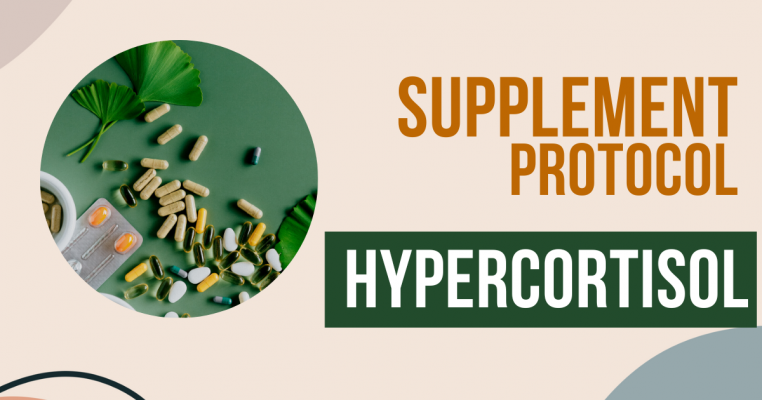How many times have you noticed the driver in the car next to you wolfing down a meal? Many of us are guilty of eating our lunch at our desk, while multi-tasking at the computer.
Gas, bloating, distention, overly full after a meal, belching, mild reflux – NOT FUN! You can find MAJOR relief by adopting a few principles of what I call Eating Hygiene. I am sharing some of the most helpful tips, and I hope you use them to get rid of your digestive frustrations. Don’t be fooled by how simple these ideas seem at first; they are powerful!
The modern era has resulted in an on-the-go lifestyle of consistently eating when in a hurry or stressed. Many of us do not take the time to sit down and truly enjoy a meal. This affects digestion of food, absorption of nutrients and ultimately, our health!
Digestion Starts with Chewing
Digesting food is an eloquent symphony which has a very specific pattern to ensure optimal function. When we eat hastily, we miss powerful, built-in mechanisms in our bodies that help us digest food.Taking a moment to just look at food can provide visual cues to the brain to prepare the body.
The pleasant aroma of food helps to start the flow of saliva, an important initial step of the digestive process. Most of us don’t adequately chew (masticate) our food. The consequence is that food is less time to interact in the oral cavity with saliva.
Role of Saliva and Enzymes
While saliva has several roles, an important one is its ability to start the digestion of starches.
Effectively “activating” this first step in the digestive process requires slowing down and adequately chewing. This is challenging for many individuals!
Without sufficient chewing, starches are not broken down and the digestive tract is not equipped to handle whole starches.
Excess gas in the digestive tract is often a sign that digestive enzymes are needed. When partial or undigested food passes through the digestive tract, it becomes fermented by the bacterial residents of the small or large intestine. The by-products of this bacterial fermentation in the colon are largely responsible for foul-smelling gas.
Eating Hygiene Tips
Slow Down. Yes, I know: it’s easier said than done, especially if you were raised in a big family and couldn’t have seconds (or dessert) until you practically inhaled what was on your plate. But digestion takes time. Digestive secretions such as stomach acid, bile, and pancreatic enzymes need time to be fully secreted. If we’re stressed, it takes even longer!
- If you wolf down your meal in a hurry, a very full stomach has trouble mixing acid and enzymes well with your food. All on its own, this dynamic creates indigestion. Think of trying to blend a batch of stir-fry in a coffee cup. There’s simply not enough room. When it “spills over”, you belch and burp and may have reflux.
- It also takes about 20 minutes for your gut to signal to your brain that you’re full and reduce your sense of hunger (courtesy of a hormone called cholecystokinin – CCK). Gulp down your food in 10 minutes? You’re much more likely to overeat and end up feeling bloating 20 minutes later.
- Get in the habit of putting down your knife and fork and sitting back in your chair in between each bite of food. Heck, spice it up and have a brief conversation without food in your mouth.After you swallow, take at least one full, cleansing breath before you pick up your utensils and enjoy another bite.
Chew. Believe it or not, on average we chew a bite of food only about 6 times before we swallow (gulp!). Chewing is the only part of the digestive process that is voluntary – that we control.
- The less we chew our food, the harder our GI tract has to work. This creates post-meal fatigue. Ideally, we chew our food until it’s almost liquid before swallowing. This can reduce gas and increase post-meal energy.
- When we swallow chunks of food (vs. tiny, mostly liquefied bits), it’s harder for digestive enzymes in the intestines to do their job. When carbohydrate foods hang around too long, the bacteria in our guts feast too heartily and create gas build-up as a metabolic byproduct. The result? Distention, bloating, flatulence. (Hint: if you chew thoroughly, it’s also much easier to slow down.)
- Count your chews. Literally. Chew every bite 20-30 times, except perhaps soups and other delicate foods. Again, we ideally chew food until its liquid. If you feel a powerful impetus to swallow beforehand, just move the food to the side of your mouth, swallow saliva, and keep chewing (think of what you automatically do with gum).
Prioritize Eating. Many people feel that eating is a waste of time unless it’s done while multi-tasking. A fascinating choice when you consider that eating is the one thing we do which literally creates our future body! We get in the habit of eating “on the go” e.g. in the car rushing to a meeting, while walking to another building, or standing up at the counter while preparing our kids’ food. All of these are a recipe for indigestion. A high-impact way to live on purpose is to treat a meal as a special, singular event.
- Sit down. When we eat in a way that doesn’t allow our nervous system to fully relax and move into parasympathetic mode, we literally put out less digestive fluids. It’s part of the body’s survival mechanism. We either ask the body to focus and rush and perform (e.g. “fight or flight”). Or we ask it to take a break and build strength and energy for the future via eating. The body cannot do both at once. Witness the diarrhea or nausea many people feel in a stressful situation. Communicate to your body with your actions that it’s safe to relax and let down our guard and focus on digestion and restoring our reserves.
- Breathe. The body needs oxygen to properly digest. Help calm your body and support digestion by taking a few, slow, calming breaths when you sit down to a meal – before you start eating.
- Relax and Savor. Try to learn to just be in the moment with your food. Colors, textures, aromas, flavors . . . Most of us are mentally “elsewhere” while we eat. The result? The brain tends to miss out on the entertainment, and we are much more likely to overeat. Distraction increases food intake. Postpone stressful discussions, replying to tense emails, or paying bills until later.
- Need help getting started? Plan your meals. For many people, it helps to put them literally in your daily appointment/commitment calendar. This ensures the time is truly “set aside” to care for yourself via mindful eating.
Don’t drink too much during meals. Yes, we need to be hydrated and focus on plain, clean water intake for overall wellness. However, the best time to hydrate is in between meals.
- When you consume large amounts of water during a meal, you dilute the acidity of your stomach acid and slow digestion. Depending on your sensitivity, this can cause an early sense of fullness and belching and long-term can cause malnutrition (especially low Vitamin B12, magnesium or iron).
- If it’s near meal-time and you feel thirsty, make a point of drinking a large glass of water right away. Then allow your body to absorb it while you are in transit to your meal or while you prepare it (ideally 20+ minutes before eating). This allows the water to clear your stomach before its digestive duty begins. Ideally, get in the habit of carrying a water glass or bottle around with you throughout the day and sip on it regularly.
I realize these seem like simple solutions! But don’t underestimate how powerful they can be. I have seen many clients dramatically improve their digestion, energy, and nutrition with these steps. Given our stress-crazed, achievement-obsessed, go-go-go society, however, it can be hard to implement these principles consistently. But you can do it! Like anything else, it just has to be a priority.
I recommend printing out a copy of this article and keeping it on your dining table. Repetition and persistence can create big change and long-term relief.
References:
- Van der Laan, LN, de Ridder DT, Viergever MA, Smeets PA. The first taste is always with the eyes: A meta-analysis on the neural correlates of processing visual food cues. Neuroimage. 2011;55(1):296-303
- Mattes, RD. Physiologic Responses to Sensory Stimulation by Food: Nutritional Implications. Journal of the American Dietetic Association. 1997;97(4):406-10.
- Tiwari M. Science behind human saliva. Journal of Natural Science, Biology, and Medicine. 2011;2(1):53-8. doi:10.4103/0976-9668.82322.jj
- Mego M, Accarino A, Malagelada JR, et al. Accumulative effect of food residues on intestinal gas production. Neurogastroenterol Motil. 2015; 27(11):1621-8.
The Wellness Journal

A Step in the Right Direction
Your return to health starts by signing up for an insightful Health Advocacy Session. Learn more about our programs today.







